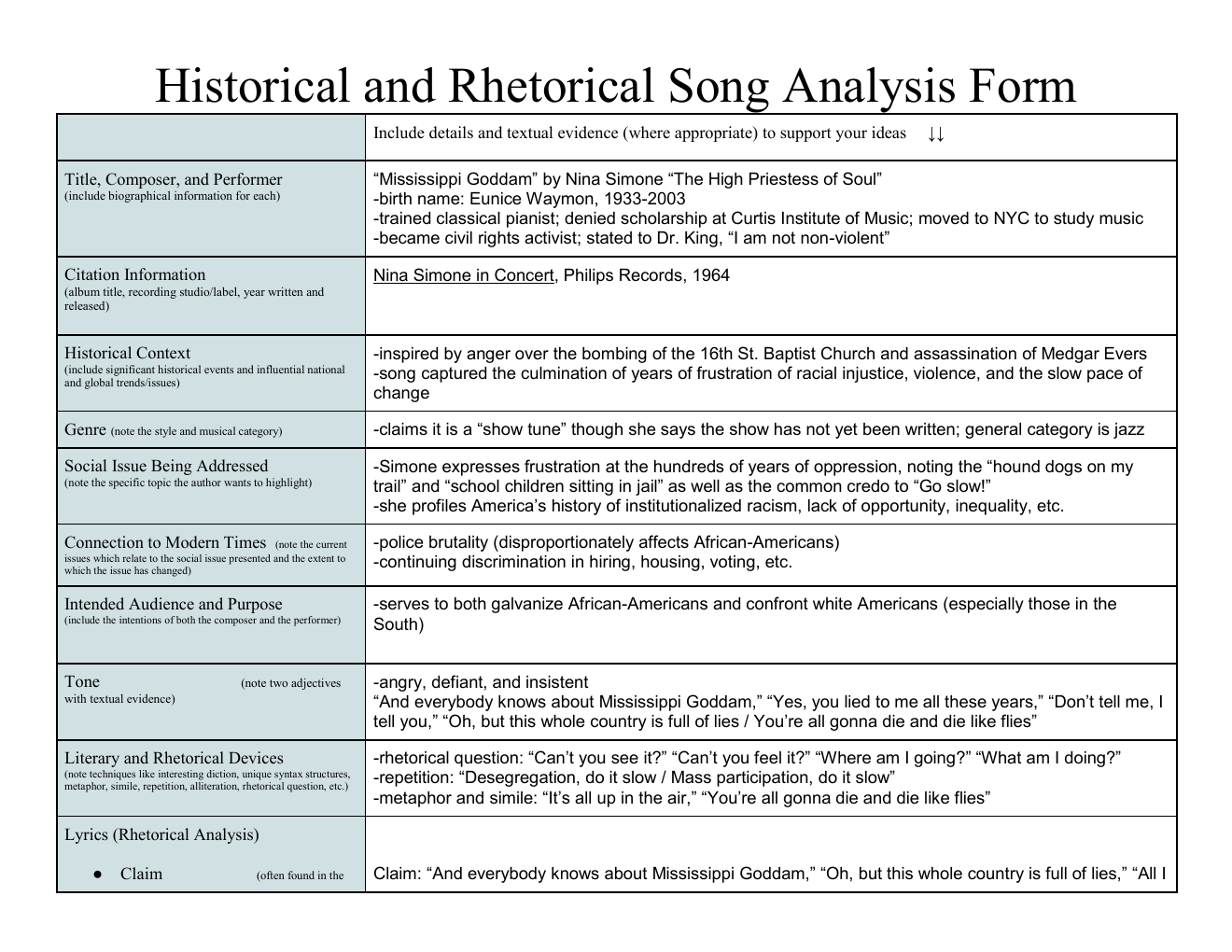Mississippi Goddam - Historical and Rhetorical Song Analysis Form
Publié le 01/02/2023
Extrait du document
«
Historical and Rhetorical Song Analysis Form
Include details and textual evidence (where appropriate) to support your ideas
Title, Composer, and Performer
(include biographical information for each)
↓↓
“Mississippi Goddam” by Nina Simone “The High Priestess of Soul”
-birth name: Eunice Waymon, 1933-2003
-trained classical pianist; denied scholarship at Curtis Institute of Music; moved to NYC to study music
-became civil rights activist; stated to Dr.
King, “I am not non-violent”
Nina Simone in Concert, Philips Records, 1964
Citation Information
(album title, recording studio/label, year written and
released)
(include significant historical events and influential national
and global trends/issues)
-inspired by anger over the bombing of the 16th St.
Baptist Church and assassination of Medgar Evers -song captured the culmination of years of frustration of racial injustice, violence, and the slow pace of change Genre (note the style and musical category) -claims it is a “show tune” though she says the show has not yet been written; general category is jazz Social Issue Being Addressed -Simone expresses frustration at the hundreds of years of oppression, noting the “hound dogs on my trail” and “school children sitting in jail” as well as the common credo to “Go slow!” -she profiles America’s history of institutionalized racism, lack of opportunity, inequality, etc. Historical Context (note the specific topic the author wants to highlight) Connection to Modern Times (note the current issues which relate to the social issue presented and the extent to which the issue has changed) -police brutality (disproportionately affects African-Americans) -continuing discrimination in hiring, housing, voting, etc. Intended Audience and Purpose -serves to both galvanize African-Americans and confront white Americans (especially those in the South) (include the intentions of both the composer and the performer) Tone (note two adjectives with textual evidence) Literary and Rhetorical Devices (note techniques like interesting diction, unique syntax structures, metaphor, simile, repetition, alliteration, rhetorical question, etc.) -angry, defiant, and insistent “And everybody knows about Mississippi Goddam,” “Yes, you lied to me all these years,” “Don’t tell me, I tell you,” “Oh, but this whole country is full of lies / You’re all gonna die and die like flies” -rhetorical question: “Can’t you see it?” “Can’t you feel it?” “Where am I going?” “What am I doing?” -repetition: “Desegregation,.... »
↓↓↓ APERÇU DU DOCUMENT ↓↓↓
Liens utiles
- The impact of social media on our societies through the changes in lifestyles, diversity and human rights.
- Analyse du film "Spring, Summer, Fall, Winter, ... and Spring"
- Encyclopedia of Philosophy: Bentham and James Mill
- Ash'ariyya and Mu'tazila
- Animal language and thought

































